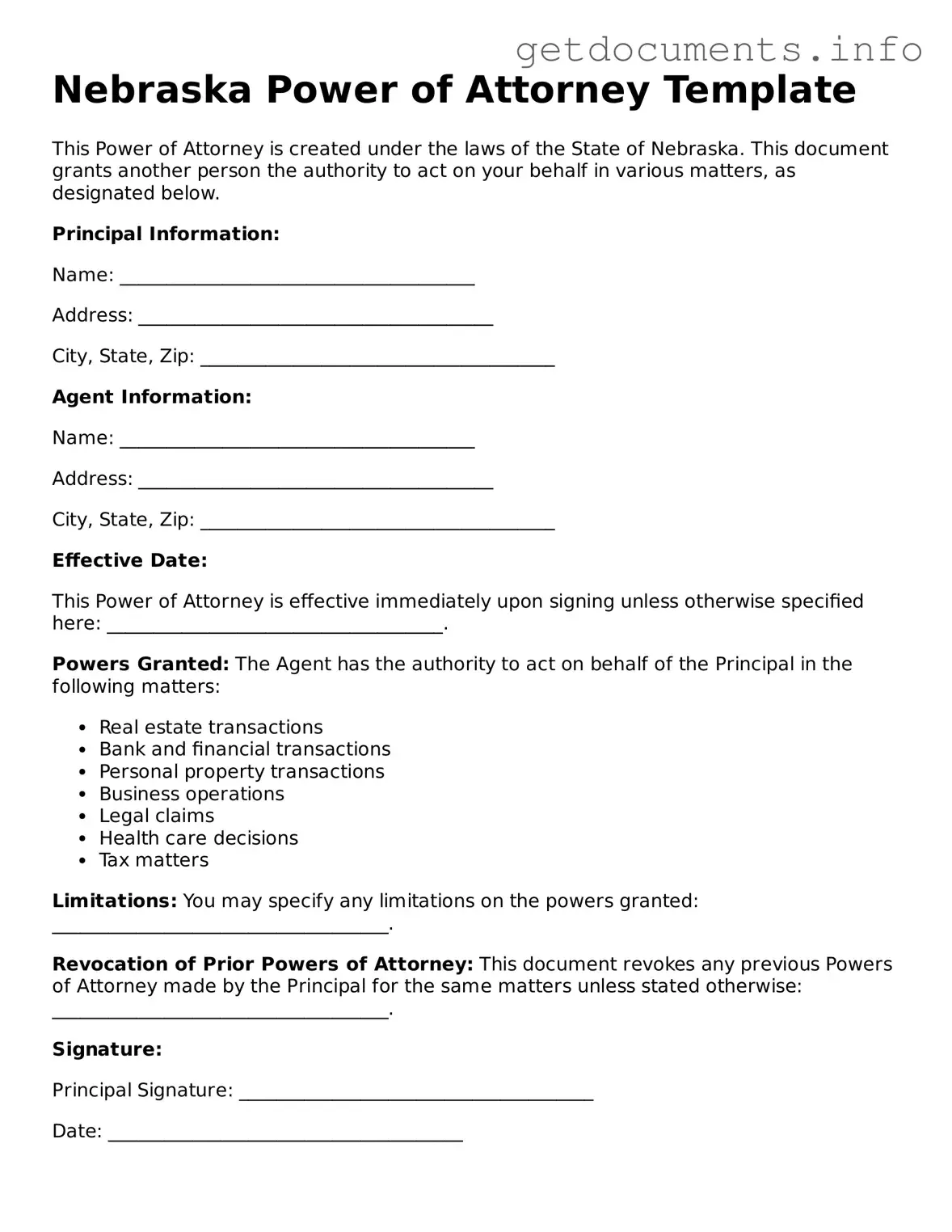Free Power of Attorney Template for Nebraska
The Nebraska Power of Attorney form is a legal document that allows an individual to designate another person to make decisions on their behalf. This form can cover a variety of matters, including financial and healthcare decisions, ensuring that your wishes are honored even if you cannot communicate them yourself. To take control of your future, consider filling out the form by clicking the button below.
Access Power of Attorney Editor

Free Power of Attorney Template for Nebraska
Access Power of Attorney Editor
Got places to be? Complete the form fast
Fill out Power of Attorney online and avoid printing or scanning.
Access Power of Attorney Editor
or
⇩ PDF File
